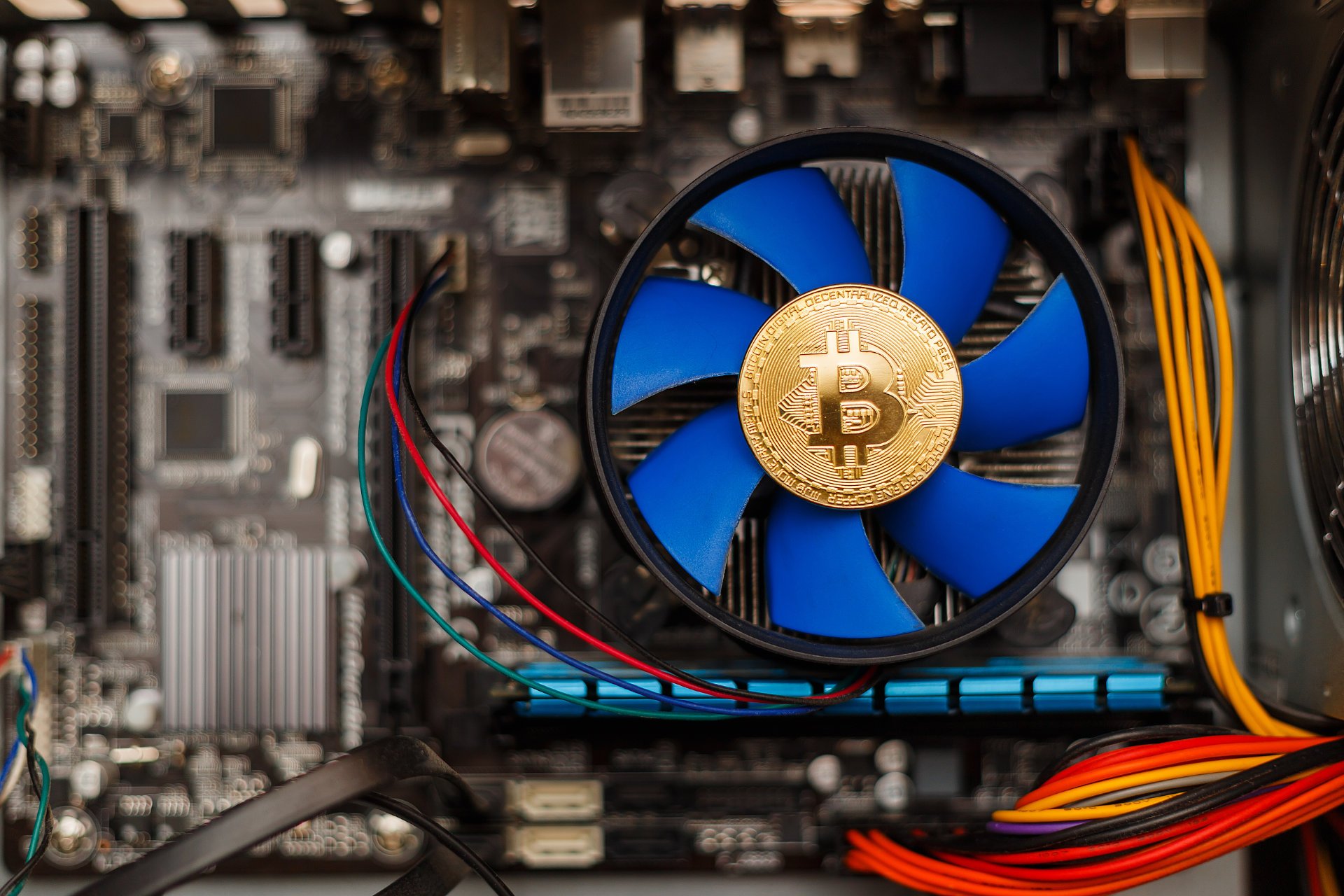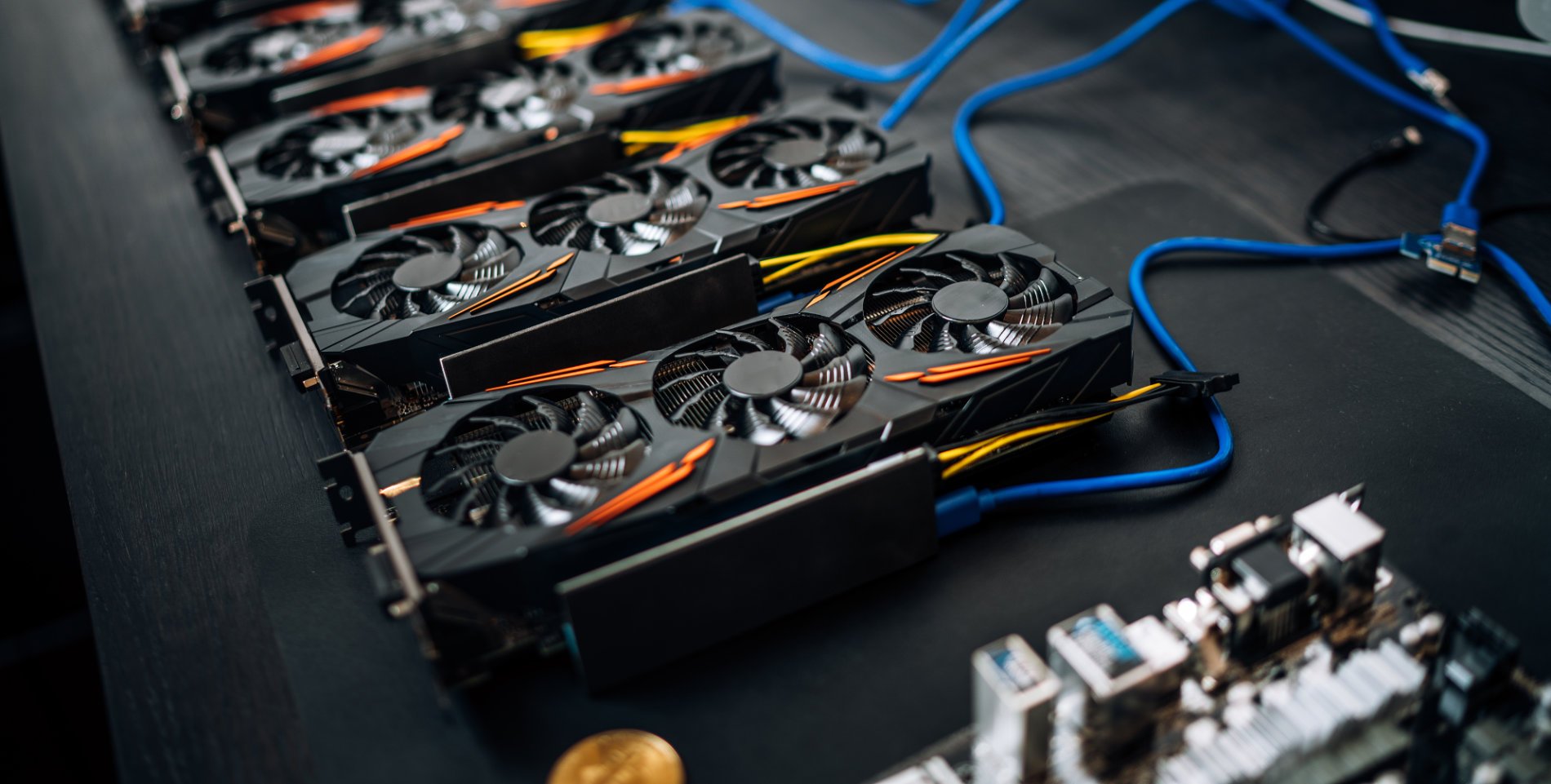
If you are interested in mining Bitcoin, you will want to learn about mining pools. When you mine as part of a pool, you essentially lend some of your resources to a bigger group of miners, and everyone profits more.
You might have many questions about mining pools if you're new to mining, but don't worry. Read on to get the scoop on mining pools for Bitcoin, along with information on how to get set up and which of all the mining pools are the best.
Table of contents [Show]
- 1 Solo Mining vs. Pooled Mining: Why Do I Need to Mine With a Pool, Anyway?
- 2 The Importance of Miners and Pools in The Bitcoin Network
- 3 Choosing a Mining Pool
- 4 The Best Bitcoin Mining Pools
- 5 So, What is the Best Mining Pool?
- 6 Directing Your Hashpower to the Mining Pool of Your Choosing
- 7 Conclusion
Solo Mining vs. Pooled Mining: Why Do I Need to Mine With a Pool, Anyway?
The simple fact is, when mining as part of a pool, you get more frequent and larger rewards than if you were mining by yourself.
As the difficulty in the Bitcoin network goes up, the earnings for miners everywhere drop. Sometimes, this is known as a halving, which happens with every cryptocurrency that can be mined, not just Bitcoin.
Several years ago, you could profitably mine alone with a few desktop computers. Nowadays, however, it takes mining in pools with ASIC machines to turn a profit mining Bitcoin.
For folks mining solo, they could get lucky and randomly get a block once every few years if they're that fortunate. Solo miners typically use the Bitcoin Core software (which was also the first ever Bitcoin wallet) to make their machine a node with the Bitcoin network. They can then mine, albeit very slowly nowadays. Sadly, solo mining is not a profitable option anymore.
Mining Pools Solve This Problem
In mining pools, each miner in the group pools their hash power together to mine Bitcoin and solve blocks. When a block is successfully found and solved by the pool, every miner in the pool gets a piece of the reward. Different mining pools also have different ways of paying out coins. Many pools have frequent payouts and larger rewards.
Before deciding which pool is the best, you must know some of the technical information behind miners and mining pools and how crucial they are to the security and integrity of the Bitcoin network. This information can help you decide which pool you'd like to lend your hash power to later down the line.
The Importance of Miners and Pools in The Bitcoin Network
Bitcoin mining pools are, of course, made up of Bitcoin miners from all over the world. Anyone who wants to mine in a certain pool just has to point their miners toward the pool's address, and their hash power will be contributed to that pool.
Every Bitcoin miner that exists and contributes to the network is, in part, directly responsible for the ongoing creation of new bitcoins. While most of the actual Bitcoin users in the world don't actually contribute to the mining process (most of these users are holders and cryptocurrency traders), people with a fascination for blockchain and its technologies tend to enjoy mining.
The miners' passion for Bitcoin and everything behind it keeps the network going. Bitcoin miners are also crucial aspects of the security and integrity of the Bitcoin network, as without miners, the network could be a lot more susceptible to attack. With Bitcoin structured how it is, it is strong and fortified as a decentralized network. Miners have a lot to do with this security.
Mining pools are important to the Bitcoin network because they encourage more miners to join the network to solve blocks. As these mining pools solve blocks, the amount of coins will continue to grow, and this is good news for everyone involved in Bitcoin.
Choosing a Mining Pool
There are plenty of mining pools out there to decide between, but when you are looking for the best Bitcoin mining pool, there are a few things you will want to consider. Some pools take fees, some are based in foreign countries, and you may not know the language. Some (but not all) offer technical support.
Here are six questions to ask yourself when deciding which pool you'd like to mine with.
- How stable and reputable is this mining pool?
This is an important question because stability and trust are big things for mining pools. Users want consistent uptime, an easy payment structure, and a sense of community. Some older pools that have seen a lot of users come in over the years have built up tight-knit communities, helping each other out, adding more miners to the pool, and working on improvements together. - What is the method of rewards and payment structure like? Different mining pools have different ways of paying out to miners after blocks are solved. These methods include Pay Per Share (miners receive a fixed amount per share), Proportional (miners receive a payout proportional to the shares they submitted to the pool), and Score Based (miner rewards are decided based on an assigned score).
- How easy is it to withdraw your earnings in this pool?
Different pools have different offerings for withdrawing your mined coins. With some pools, your earnings are sent directly to the Bitcoin address you provide the pool. With others, your earnings will show up in the user interface, and you can manually withdraw them to a wallet you control. - How frequently does this pool find and solve blocks?
This varies based on the pool, and one of the biggest factors here is the size of the pool. The simple fact is that larger pools will find blocks faster. On the other hand, earnings from mining in bigger pools will be smaller than those of smaller pools. - Does this pool include fees?
Some pools take no fees from users, while others take small fees. The fees are typically taken straight from the amount of coins the miner earns before being sent to the destination Bitcoin address. - How's the security of this pool?
Read up on what other miners think of pools on places like crypto forums or Reddit. Some pools have better security than others. Mining pools can often be the targets of Distributed Denial of Service (DDOS) attacks, sometimes by malicious actors and sometimes by other pools. A great pool will have admins that make sure the pool's uptime is consistent. After all, a pool that is down isn't contributing to the network in any way.
These are all important questions to ask and consider when looking at any Bitcoin mining pool, as some of these factors can influence how often your pool finds and solves blocks. Some of these factors can also influence the amount of Bitcoin everyone in the pool will mine.
The Best Bitcoin Mining Pools

With some technicals out of the way, it's time to dive into the vast ocean of Bitcoin mining pools. There are plenty of choices out there, but here, we will focus on the best of the best.
Here, you'll find a list of some of the best Bitcoin mining pools available and what makes them great.
Slush Pool
Slush Pool is the original Bitcoin mining pool. It was first set up in 2010, known at the time as the Bitcoin Pooled Mining Server. It was the first of its kind and is still run by Satoshi Labs, the group that developed the first offline Bitcoin wallet.
Slush Pool uses a Score-based method, which can help encourage cheaters who randomly switch pools to achieve more payouts. New miners also get access to a demo account to test out before officially signing up with Slush Pool.
- What are Slush Pool's fees? There is a 2 percent transaction fee, but it is shared amongst all the miners.
- How does Slush Pool pay? Miners are given a threshold to meet before they can withdraw. The threshold balance is 0.0002 BTC, and Slush Pool pays out every time that threshold is reached or exceeded.
- How is Slush Pool's security? Slush Pool has several security measures to help keep your coins safe, such as two-factor authentication.
BTC.com Pool
Created by Bitmain, the organization behind the wildly popular Antminer ASIC hardware miners and its dedicated Ant Pool, the BTC.com Pool is another popular and trusted Bitcoin mining pool. For convenience's sake, this pool even has a mobile app for Apple's iOS and Google's Android to check your earnings on the go.
BTC.com Pool was launched in 2015 and uses the Pay Per Share payment method.
- What are BTC.com Pool's fees? BTC.com is another pool that shares its fees with its miners. The average fee in this mining pool is 1.5 percent.
- How does BTC.com Pool pay? There is no minimum threshold for payments on the BTC.com pool. The site pays out every two hours, depending on the Bitcoin network.
- How is BTC.com Pool's security? BTC.com is protected by Cloudflare, which is a huge defender against DDOS attacks.
F2Pool
F2Pool is another one of the older and more well-known mining pools out there. It is one of the largest Bitcoin mining pools in all of China and is used by miners worldwide. This mining pool has also broadened its horizons. It also offers Bitcoin mining and the ability to mine Ethereum, Litecoin, and Zcash.
F2Pool was launched in 2013 and uses the Pay Per Share rewards system for payout.
- What are F2Pool's fees? F2Pool has a loftier fee of 4 percent. This fee isn't shared with the miners.
- How does F2Pool pay? This mining pool is different because it lets the user define a withdrawal limit, and it can be anything they choose. After the threshold the user decides is mined, F2Pool pays out to their designated Bitcoin wallet address.
- How is F2Pool's security? F2Pool is protected by the secure HTTPS web protocol and uses a unique Bitcoin wallet lock feature. For security reasons, users cannot change their email address once registered. So, if you will use this pool, ensure you don't lose access to the email account you use to sign up.
BTCC Pool
Another Bitcoin mining pool originally hailing from China, this BTCC Pool offers quite a bit in the way of a nice user interface and lets users know their stats. The creators of BTCC Pool also run a crypto exchange and create wallet software. These other projects add to the trustworthiness and legitimacy of this crypto company.
The BTCC Pool is also unique in a few other regards. Using the WeChat feature of the site, miners can see detailed statistics about themselves and the pool in general. Miners are able to track their hash power, the hash power of the entire pool, and the hash power of the whole Bitcoin network. All of this can be tracked in the BTCC Pool user interface.
BTCC Pool was launched in 2014 and uses the Pay Per Share method for payout.
- What are BTCC Pool's fees? BTCC Pool has a 2 percent transaction fee shared with the miners. It is important to note that BTCC Pool plans to switch to a 1 percent transaction fee in the future, which will still be shared with the miners.
- How does BTCC Pool pay? This mining pool doesn't have a set threshold. Payments are made regularly based on shares contributed by your miners directly to your specified Bitcoin wallet address.
- How is BTCC Pool's security? BTCC Pool is transparent and run on dedicated servers by a crypto company. The HTTPS web security protocol protects the site.
Eligius Pool
Eligius Pool is a smaller but popular and robust Bitcoin mining pool. It has a lot of neat features for users to take advantage of. Some of these features include detailed stats and infographics showing users their earnings and hash power, along with the hash power of the pool and other users. A leaderboard shows which users are dedicating the most hash power to the pool.
Anyone can easily join Eligius Pool, as registration is not required. There is even a working phone number for technical support.
Eligius Pool was launched in 2015 and uses the Pay Per Share method for payouts.
- What are Eligius Pool's fees? There are zero fees on this mining pool.
- How does Eligius Pool pay? This mining pool does have a threshold. Users must reach earnings of up to 0.04194304 BTC before they are able to obtain payouts. After the threshold is reached, payouts are sent directly to the miner's specified Bitcoin wallet address.
- How is Eligius Pool's security? Eligius Pool is unique with its security and is serious about making sure any changes you make are actually made by you. That is why, before any changes are made to your Eligius Pool account, you must sign them with your Bitcoin wallet address, which doubles as your username on Eligius Pool.
Ant Pool
Ant Pool is one of the world's largest and most well-known Bitcoin mining pools. It was created by Bitmain, the manufacturer of the wildly popular Antminer ASIC mining machines. Bitmain also runs the BTC.com Pool.
Account registration on Ant Pool is completely free. Ant Pool has a lot of neat features for users to enjoy. Some of these include the brilliant user interface that comes in handy for new miners and a dashboard where the miner can see their earnings and hash power.
Ant Pool was launched in 2013 and features two payment methods from which the user can choose. Pay Per Share and Pay Per Last N Share (PPLNS) are options. These options also affect the transaction fees.
- What are Ant Pool's fees? The fees on Ant Pool are decided by the user's payment method. If choosing Pay Per Share, the transaction fee is 2.5 percent. If using the PPLNS payment method, there will be no fees.
- How does Ant Pool pay? Ant Pool does not have a payout threshold. Payments are made every morning around 10 AM UTC for every miner with an earnings balance of at least 0.001 BTC.
- How is Ant Pool's security? Security-wise, Ant Pool is one of the most robust around. Ant Pool offers two-factor authentication for signing in and email alerts for users to know when unauthorized activity is detected on their accounts. Ant Pool also offers Bitcoin wallet locks.
Knowing how to get set up and go with a pool is important once you decide which one you'd like to contribute to.
So, What is the Best Mining Pool?
Choosing the best Bitcoin mining pool is very hard, if not impossible. More seasoned crypto miners may have preferences for some pools that others may not care about as much. Out of all of these options, however, the best for new miners to go with might be BTC.com Pool.
For the new miner just getting started or even just a miner who wants a one-stop shop for their mining, BTC.com's pool offers quite the hard-to-resist package. Not only does it offer great security and a good payout structure, but it also has a sleek user interface and even a mobile app.
Users who want to keep up with their BTC.com pool earnings while on the go need only download and install the BTC.com mobile application for their Apple iPhone or iPad or Android smartphone or tablet. They can then see the same dashboard they can see on the website, complete with their current earnings and payouts, hash power for each miner, and even which of their miners are online or offline.
With all of these things going for the pool, it makes BTC.com's pool a hard one to resist for anyone who likes to have everything in one place. This level of organization is a great place to start for new miners, especially. It also doesn't hurt that the BTC.com pool was started by Bitmain, a huge Bitcoin mining equipment manufacturer and one of the biggest names in the Bitcoin mining community.
Directing Your Hashpower to the Mining Pool of Your Choosing
After you've researched the cornucopia of mining pools available to miners worldwide and decided which one you'd like to join, it's time to point your miners toward the pool.
It is easy to get your hardware set up with your chosen pool. Just follow a few simple steps, and you'll be mining quickly.
- Find your pool's address.
This usually starts with 'stratum+tcp'. - Identify your Bitcoin wallet address.
You can find this easily by looking at the receive tab of almost any Bitcoin wallet software. - Point your miner's software towards the pool address, and input your Bitcoin address for payments.
Unless your mining pool has you do this step through a web portal, you'll need to point your mining hardware to your mining pool of choice. Take the pool address you found earlier and enter it. You will then want to enter your Bitcoin wallet address so the pool will know where to send your earnings.
The steps can vary based on what pool and what mining hardware you're using, so make sure to do some research.
Conclusion
Now you know the basics of Bitcoin mining pools and how you can make an informed decision on the best one for you to conduct your mining efforts. You've learned about some of the best pools, pay structures, and security features.
So what are you waiting for? Point your mining hardware to your favorite pool and start mining today.
